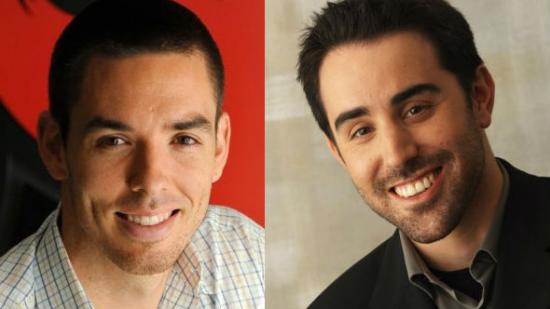Established in 2006, Riot Games is celebrating its 10th anniversary this year. In a decade, the company has produced but a single game, and yet the Californian developer is one of the titans of PC gaming. According to its latest statistics, League of Legends has amassed 100 million unique monthly users, a figure which is roughly double the population of Spain and two and half times the total number of PS4s sold since launch.
Want to get involved? You can play League of Legends free.
And yet something so massive was conceived by only two men: Brandon ‘Ryze’ Beck and Marc ‘Tryndamere’ Merrill who founded Riot games and sent the MOBA genre stratospheric. The pair have lead the company for a decade, and are now reflecting on the journey and where Riot, a company which has an estimated revenue of over $1.4 billion, will go next.
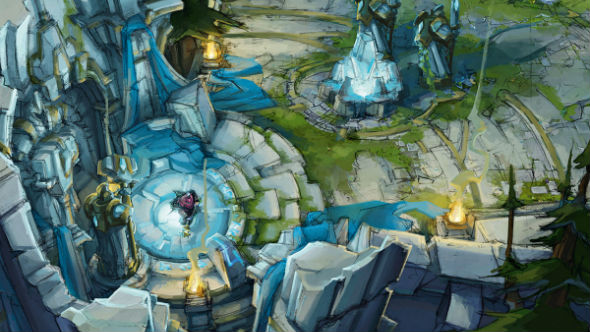
PCGamesN: Who do you both main?
Brandon Beck: Right now it’s funny – it’s the same champion.
Marc Merrill: And it’s the first time in history that it’s actually the case that we’re both playing the same champion and the same role at the same time.
BB: We’re both playing Lux right now.
The League of Legends champion pool has swelled past 130 playable characters. When do you say ‘enough is enough’ and stop making more?
BB: It’s something we’ve asked ourselves since we were sub-100 [champions]. One of the obvious challenges of introducing more champions is that it can raise the barrier for entry and the amount of knowledge you have to have going into the game. Whenever we’re adding complexity, or learning barriers, we take the cost seriously. We think about it a lot and we’ve decided that there are a variety of ways to tackle it but we’ll cross the bridge when we have to. We don’t want to do anything overly rash in the short term.
MM: Another thing that we do is ask questions of any champion that we /do/ release. Is it worth putting into the game? Is it really cool? Is it hitting this high bar and bringing something new? From an IP perspective and from a game perspective, Kled, our latest champion, gets back to some of our roots. He’s a super fun character with some interesting mechanics like his mount, Skaarl. We definitely want to continue to add a bunch of elements to the game because there’s no shortage of great ideas, but we recognise that the cost [to the new player] is high.
That’s also why we’re doing a lot of reworks, because obviously there are a lot of other champions that collect some dust or it’s been a while since we went back and touched them. League is constantly evolving and we expect that to be the case in the future including if there’s ever other drastic changes to how we think about champions.

At this rate you’ll reach 150 champions in roughly four years time. What do you think League will look like by then?
BB: Hopefully the rate of improvement and change will continue, and hopefully the quality of those incremental improvements will get better. From our perspective there’s a lot left to do. There are lot of ideas that we’ve had as a team and opportunities that we wanted to pursue for the game that we haven’t been able to get to. There are a lot of obvious features that we don’t have that the community rightfully teases us about.
Such as?
MM: Sure: replays, sandbox, a new client. There’s a variety of features and desires that the community has been shouting for. The good thing is that with the client we’re in the public alpha stage and these things are going to happen.
We grew a lot faster than we ever expected to; there’s this longstanding joke that we had to build the plane while flying. In the same way that you’ve seen the front end of the game constantly evolve, whether it’s the UI or the champions or the art or Summoner’s Rift, we’ve kind of got do the same thing behind the scenes with our tools, our engine, our back-end. And as those things happen it becomes easier for us to add additional things to the game. We feel like we’re finally gonna get to a new stage with the other stuff where we’re getting our head above water, which is nice, both for our developers but more importantly for our players. We’ll have a better foundation to continue to deliver great things.
Because we have these humble roots as a startup, we still think of ourselves as being scrappy, but sometimes, unfortunately, it means that we’ve been late on things that players have asked for. We’ve never forgotten, even if we haven’t been able to deliver in the timeframe that [players] wanted. We want to be the type of place where we fulfill our commitments and when we do make mistakes, we own those mistakes, and talk to the community about what’s going on, We recognise that often no answer sufficient and that just sucks for everybody involved.
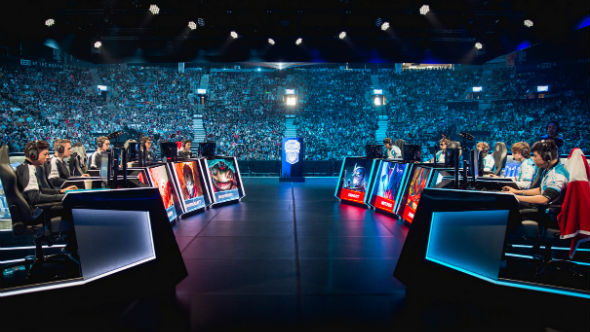
This resonates with the crisis Riot experienced surrounding Solo Queue and Dynamic Queue. Why did Riot respond to that the way you did?
MM: That’s a great question and it’s a pretty sore point for both of us too. It’s a complicated issue. Long story short: we /are/ bringing Solo Queue back, in particular where Dynamic Queue really doesn’t work. So there are a couple of different issues. The first is that when we first launched Dynamic Queue there were a bunch of quality of life issues to solve (queue times were too high, and stuff like that). We think we’ve made a lot of improvements to it throughout the year. Our players have constantly been asking for the ability to play with friends. It’s really fun to play with friends and League as a team game is just better when you play it that way, so we wanted to try and create a really competitive experience in ranked that enabled that.
Unfortunately there are a lot of challenges and edge case scenarios that we did not do a great job of appropriately planning for the impact it would have for our high-end players and in particular our pros. Beyond that, there were also problems for players who care deeply about the credibility of their Solo Queue rating.
So we’re bringing Solo Queue back for the top group of the ladder at Diamond One and above. Essentially we’re turning off Dynamic Queue for that group. The response so far from the community has been positive and we’re evaluating what we’re going to do with ranked and we’ll be talking about that soon. I think we learned a lot as a company going through that experience. We were slow to react and explain certain aspects of what was going on and listen to a lot of the pain that was being caused. Hopefully we’re going to continue to get better with the changes going forward.
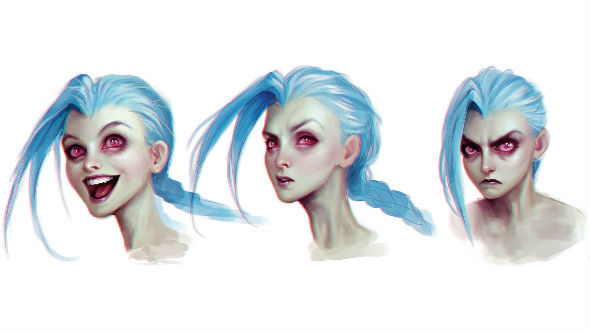
As League of Legends continues to evolve, are you ever worried that you’ll suffer the same fate as StarCraft, which was ultimately superseded by games which are more accessible?
MM: It’s possible – as time goes on player expectations continue to go up and up and up and there are great other products which are being introduced such as Overwatch.
I think that the most important thing which we can do is continue to delight our players and serve them well by improving the product. Sometimes that means that we’ll make long-term, controversial decisions, other times it means that we need to be more reactive according to the requests and demands that players have. The most important thing we could possibly do is to have League of Legends continue to be the great multiplayer competitive game that it is and as long as we’re doing a great job of delivering that experience, we don’t even care or think about shooting to be number one or look to metrics as a goal. That’s not how we think.
BB: League is designed to be an enthusiast experience; it’s not something for everyone and it was never intended to be. It can’t possibly be in its current form and we also recognise that the type of commitment required to feel competitive and on your game in League is heavy and not viable for everyone during every phase of their life – even our most hardcore players. People are going to vacillate between different types of experience as gamers, that’s certainly what we do, but I think we want to have League provide that really competitive game with a really deep, long mastery curve and we recognise that that can’t be something for everyone.
Mark and I, we’re gamers, that’s where this all came from, that’s why we’re doing this, so we relate to that. We play Overwatch, we play tons of different games besides our own. Some of them really seriously.
MM: Brandon was in the top 100 of the original StarCraft ladder. Our head of design won a huge Brood War tournament, then became a designer a Blizzard. So there are a lot of competitive gaming roots at the company.
BB: We’re having a lot of fun playing other games too. We ebb and flow interest wise just like any other player would, so the key for us is thinking long-term and making sure that we don’t ever take our eye off the ball or ignore players that are really dedicated to the experience. We need to make sure we can always relate.
MM: Here’s a metaphor that we think may be appropriate: often there are times when you’re playing sports and you can jump in and be really hardcore, let’s say in an adult soccer league for instance and you’re playing with your buddies. Other times you may experience a drought because you may have kids or have a new job. And often, things that can reignite you into that experience, which you may have a passion for, is the ability to have time or social contacts where you can go play with your buddies, but even if you can’t play yourself maybe you’ll keep watching. We think that League provides similar types of experience and we’re totally ok with and recognise that people come in and out of the game, and what we need to do is make it great and welcoming for people who want to continue to play it.
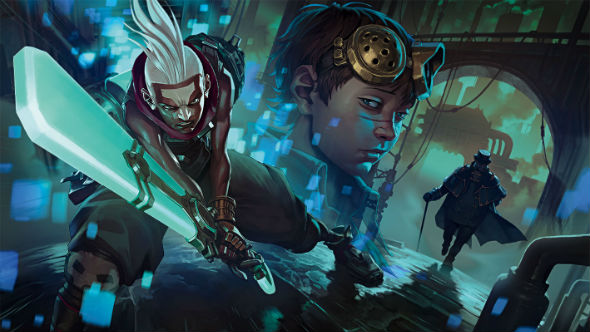
Surely Riot can’t focus on League forever. When are you going to make another game?
BB: We definitely intend to, but like we’ve said, we don’t want to take our eye off the ball with League. The majority of our focus and attention is there but there are additional games that we want to make and there’s stuff that we’re working on but we’re not going to be lightning fast. We’re going to take our time. We don’t think that the world wants us to rush products out, just as players we want developers to take their time and focus on making sure that new games are really adding value or really bringing something new to the table.
Merill: And part of it is that we still haven’t delivered a lot of the things [League players] have been asking for so the last thing we wanted to do was peel off a huge percentage of development resources to go and focus on other games. Though we’d love to be able to deliver other experiences as well.
And I mean, if you were going to name a genre you were interested in…
MM: [laughs] Fishing!
BB: I think that what we’re focused on [is] players who are serious about games. I think that any new genre that we would focus on would be something that would be close to all of our hearts or have the potential.
What about other gaming companies? If you could give advice for another company aiming for a free to play model, what would you say to them?
BB: League was F2P because it /had/ to be. No-one had heard of us, we didn’t have an IP that anyone had heard of, and no-one was really familiar with the genre. And so demanding a $60 box price point for this experience just didn’t seem like an option as gamers. So our view became that we had to give it away and let people experience it and if they engage with us the model will take care of itself.
That was a leap of faith but it proved to be true. What’s interesting is that I don’t actually think it’s the right model for every game. I’m not sure that future games that we would create would use F2P. We need to ask ourselves, ‘should this game be F2P or is this the type of experience that should never be unbundled, and how are we going to support it if it’s going to be an ongoing service?’ Every developer should put their player hat on. It’s important to ask ‘does this make the most sense?’
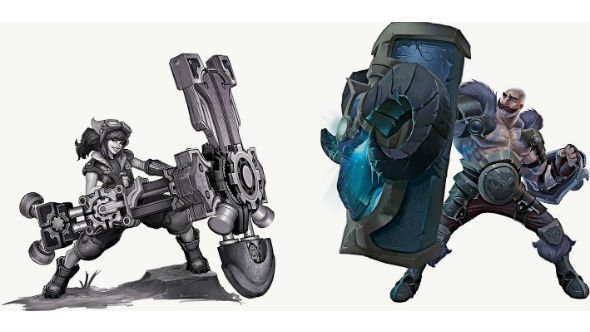
What do you want the legacy of League of Legends to be?
MM: Personally I think that if we were to pick anything, I think we want Riot to be known as a developer that players can trust and has their best interests in mind. We’ll communicate, we’ll be transparent and we’ll sometimes make decisions on behalf of players. Even if there are disagreements about that we want to be regarded as the kind of place who will own [our issues] and try to make them right. I think that if you look back at the history and track record of Riot, I think there are a lot of examples where that’s the case. We’re a company of gamers that’s trying to deliver a great experience for players. I think that’s our guiding compass.
Before you leave, we simply have to know one more thing. If you both pitted in a wrestling match against Gabe Newell, who would come out on top?
BB: Gabe for sure. He’s the godfather of PC gaming, he’s a big strong dude, and even with the two of us…
MM: Yeah, Gabe’s the man.
For League’s immediate future, have a look at what’s coming in LoL patch 6.19 next week. Let us know your thoughts on Riot and their future below.
